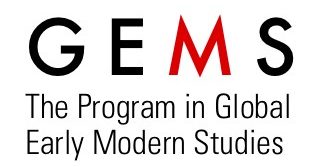June 11-16 | Rare Book School, Yale
RARE BOOK SCHOOL
“The Books of the Plays: Shakespeare and Print”
David Scott Kastan
Yale University
11-16 June 2017 in New Haven, Connecticut
It is a cliché of Shakespeare scholarship that he was a “man of the theater.” But he was also a product of print. This class will be an intensive exploration of the ways in which print was responsible for Shakespeare (or better, for “Shakespeare”). No manuscripts of Shakespeare’s plays have survived, so print is what allows us to read and even perform Shakespeare now. But it wasn’t inevitable that his plays reached print, and, even when they did, it wasn’t inevitable that they would have survived. (Think about Love’s Labor’s Won, a title mentioned by Francis Meres in 1598, and which was owned and offered for sale by an Exeter bookseller in 1603.) The course will allow us to explore the conditions of print in early modern England, though mainly focus on the publication and circulation of Shakespeare’s plays in print–from the earliest quartos, to the aborted Pavier collection of 1619, to the four early folios (1623-1685), to the great eighteenth-century editions, to the “Globe” Shakespeare of 1864, and to modern editorial projects in which we all first encountered Shakespeare. There will also be some consideration of what it means to “edit” Shakespeare.
The course will be run as a seminar, and will be project-specific, drawing its focus in in part from the interests of its participants, but with work depending upon the extraordinary resources of the Beinecke collection, as well as that of the Elizabethan Club. Participants will have the opportunity to work closely with the early materials, do original research, and pursue topics of their own interest as they come to understand the ways in which print is what has allowed Shakespeare to become not just the name of the England’s (the world’s?) most famous playwright but also the synecdochal name of a treasured book.
The seminar is designed for scholars, graduate students, librarians, and collectors, who are interested particularly in Shakespeare (and early drama), but interested also in the material and institutional practices of the early English printing trade and in thinking about how materiality might affect literary understanding.
In their personal statement, applicants are requested to summarize their background in the field, indicate any current research projects, and suggests topics or issues that they would particularly like the course to address.




Comments are closed, but trackbacks and pingbacks are open.